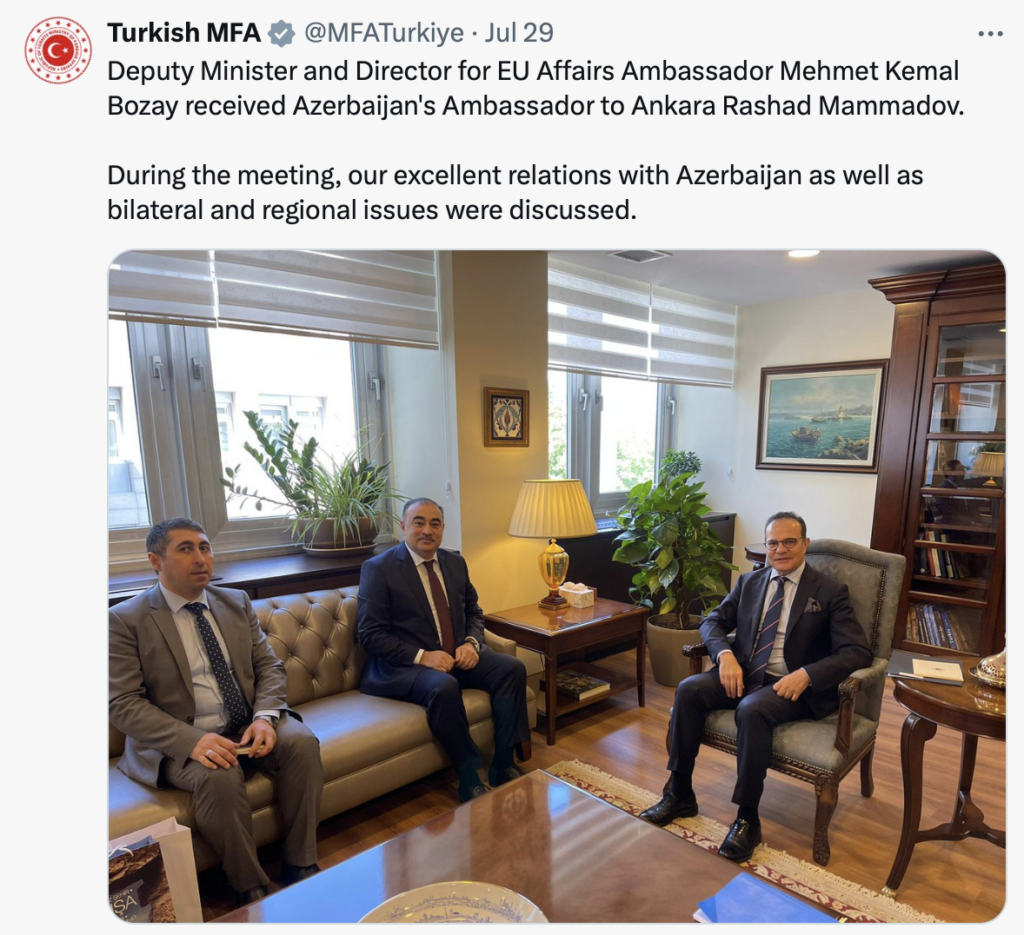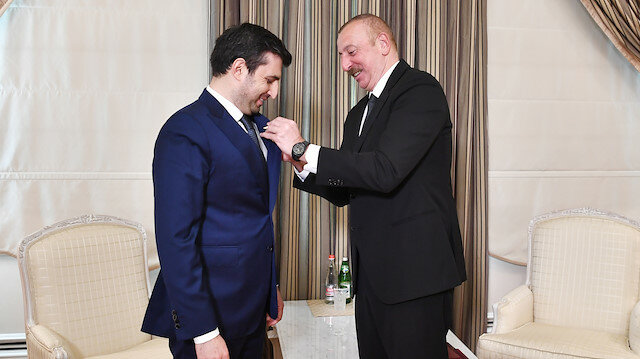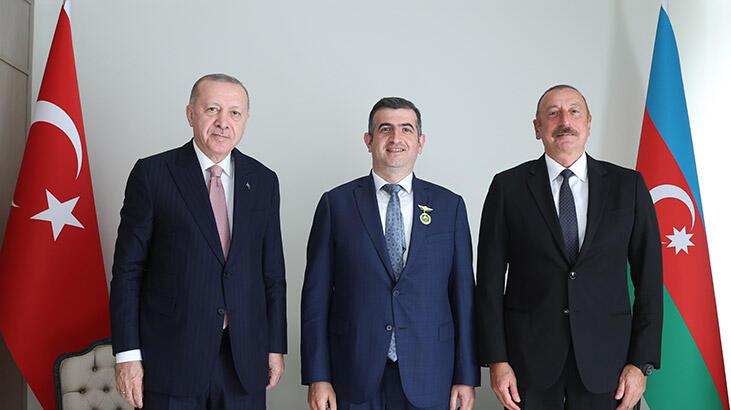Levent Kenez/Stockholm
Turkish President Recep Tayyip Erdogan drew Baku’s ire with his statements about Turkey’s role in the 2020 Nagorno-Karabakh War, which concluded with Azerbaijan’s victory. Erdogan continues to leverage Turkey’s contribution for domestic political purposes.
During a party meeting in his hometown of Rize on Saturday, Erdogan, referring to Israel, said, “Just as we entered Karabakh, just as we entered Libya, we should do the same with Israel. There is nothing stopping us. We just need to be strong to take this step.”
In response to Erdogan’s remarks, an official from the Azerbaijani Ministry of Defense spoke to local media, saying, “There is no basis for claims regarding the involvement of any country’s military personnel in the battles for Azerbaijan’s territorial integrity and sovereignty.”
“President Ilham Aliyev has repeatedly expressed his gratitude to the leadership of Turkey and Pakistan for their political support. The Azerbaijani Armed Forces suffered around 3,000 casualties during the war and 204 in a single anti-terror operation,” the official added.
While Baku conveyed its message to Turkey through the media, the following day it formally expressed its concerns through diplomatic channels. On July 29 Azerbaijan’s ambassador to Ankara, Rashad Mammadov, met with Turkish Deputy Foreign Minister Mehmet Kemal Bozay to address the issue.

However, it seems that Baku’s concerns have not yet been addressed in Erdogan’s statements. On Tuesday, while criticizing Turkey’s main opposition Republican People’s Party (CHP) during a meeting with his party’s provincial chairmen in Ankara, Erdogan said, “In our struggle to liberate Karabakh after 30 years of occupation, we received the harshest criticism from the CHP leadership. It was the CHP members who raised the Armenians’ baseless claims.”
Azerbaijani Ambassador Mammadov then paid a visit to Deputy Foreign Minister Berris Ekinci on Wednesday. The specific agenda of their meeting remains uncertain, leaving open the possibility that it could be related to Turkey’s purported role in the Nagorno-Karabakh conflict. The ambassador’s two visits to the ministry within a three-day period have attracted attention. In an official statement it was revealed that they exchanged views on cooperation in the fields of energy and transport connectivity as well as collaboration on multilateral platforms, including the OSCE.

Turkey’s support for Azerbaijan during the conflict is widely recognized, including logistical and intelligence assistance and the use of Turkish-made drones by the Azerbaijani military. Turkish drone manufacturer Baykar Makina, led by Haluk Bayraktar, was notably honored by Azerbaijani President Aliyev, who awarded the Garabagh Order to Bayraktar on June 15, 2021 for his role in the 2020 Nagorno-Karabakh War. President Aliyev had previously awarded the same honor to Erdogan’s son-in-law Selçuk Bayraktar, co-owner of Baykar Makina, on April 1, 2021, praising the Bayraktar TB2 drones for their effectiveness in the conflict.
Additionally, on June 15, 2021, Erdogan and Aliyev met in Shusha, a city emblematic of the Armenian-Azerbaijani conflict, to sign the “Shusha Declaration.” This agreement, celebrated on Azerbaijan’s national day, underscores the deepening military cooperation between the two countries and Turkey’s support for Azerbaijan’s territorial integrity. A key provision of the declaration is the commitment to mutual military assistance in the event of an attack or threat from a third state, highlighting the strategic alliance between Turkey and Azerbaijan.

Nordic Monitor previously reported that in 2018 leading Turkish defense contractor Aselsan signed an agreement with its Azerbaijani counterpart for the joint production of communications facilities. Similarly, Turkish Aerospace Industries (TAI) signed a cooperation protocol with the Azerbaijan National Academy of Sciences (AMEA) in September 2018 to combine efforts in the fields of defense and aviation. The same year, the Turkish Mechanical and Chemical Industry Corporation (MKE) received a defense cooperation offer from Azerbaijan’s Ministry of the Defense Industry, the state-run Anadolu news agency reported. Moreover, Turkey’s Roketsan and Azerbaijani military-scientific enterprise Iglim have been working on developing a long-range missile system since 2009.
Erdogan, known for his strong statements against Israeli military operations in Gaza, has faced criticism from opposition figures regarding the business dealings of his close associates with Israel. In response to the public outcry, Turkey imposed restrictions on the export of certain products to Israel in April 2024. However, the Erdogan government has been criticized by pro-Palestinian groups for allowing SOCAR (State Oil Company of Azerbaijan Republic) to transport Azerbaijani oil via pipelines to Turkey’s southern port of Ceyhan and subsequently ship it to Israel.
On June 1, a group staged a protest outside SOCAR’s office in Istanbul. The protesters were briefly detained and later released.












